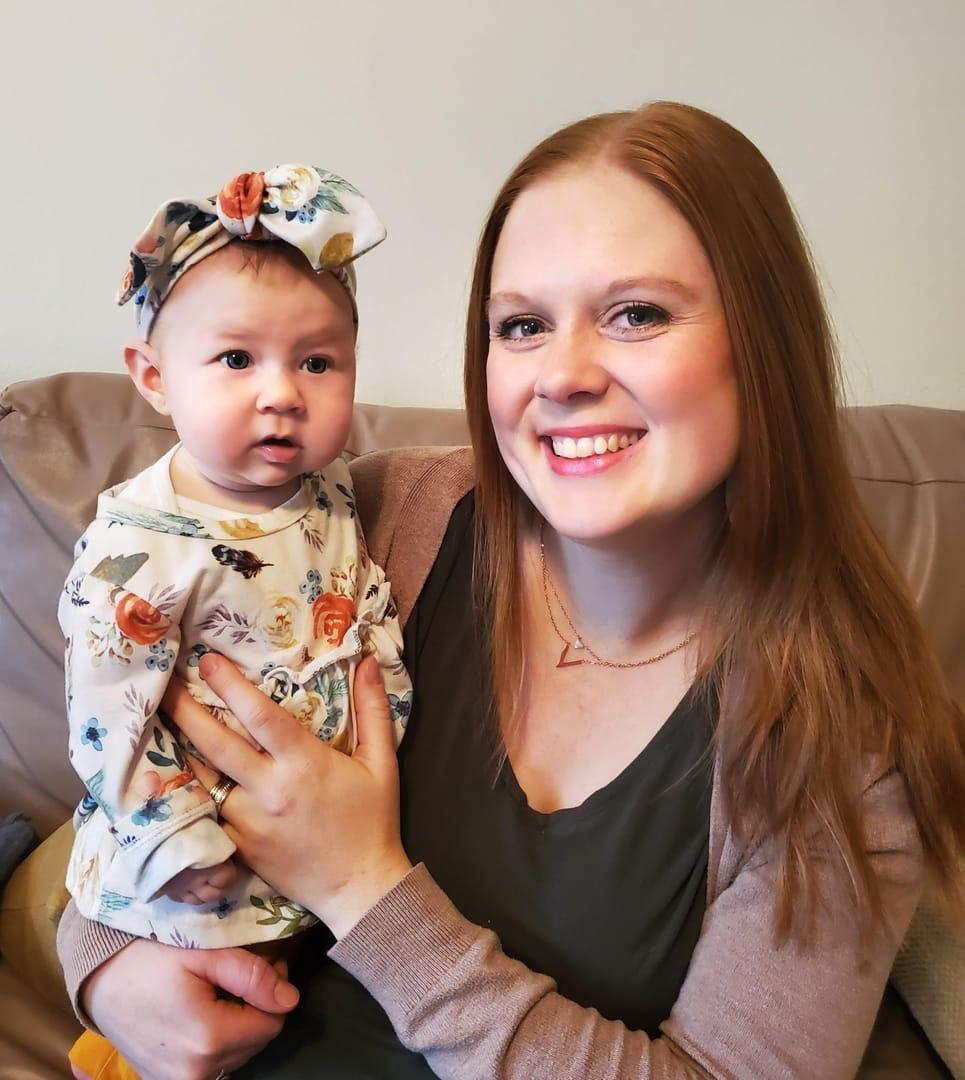ALBANY, New York — Gianna of Albany is celebrating a precious milestone: The birth of its 100th baby.
Dr. Jan Patterson, the center’s founder, made the discovery in January while reviewing paperwork.
“Someone was helping me count up the deliveries that we have had and I said, ‘Oh my goodness, we’re at 100!'” she told The Evangelist, newspaper of the Diocese of Albany.
Gianna of Albany is affiliated with the National Gianna Center for Women’s Health and Fertility, a nonprofit women’s health care initiative that provides natural and ethical options in reproductive and fertility care. The network helps women struggling with infertility, recurrent miscarriages and reproductive health.
The center’s 100th baby — named Evangeline Margaret Mary — was born to Alisha Fogarty Nov. 1. Fogarty and her family recently moved from the Albany Diocese to Connecticut, but she continues as a patient, communicating through virtual appointments.
Fogarty first connected with Patterson in August 2019 after a tumultuous period of trying to get pregnant. Even before her visit, Fogarty had heard about Patterson’s practice through a local home-schooling mothers group, but it wasn’t until Fogarty and her husband started trying for their sixth child and she experienced multiple miscarriages that she thought of going to Gianna of Albany.
As she was trying to determine the cause of the miscarriages, her obstetrician-gynecologist recommended she be put on birth control to address why “I wasn’t feeling myself.”
It wasn’t the answer Fogarty needed. She told the doctor that her Catholic faith prevented her from using contraceptives, and moreover, she didn’t want to use them because she was trying to get pregnant.
After her third miscarriage, Fogarty was angry after the doctors asked her, “How are you feeling?”
“And I said, ‘I’m mad. I am mad that I’m here having my third miscarriage,'” she said. “That’s frustrating and it’s maddening because it shouldn’t have happened. This was preventable, but (they) wouldn’t do anything about it. I said get me through it so I can get help.”
That’s when Fogarty approached Patterson, who she said was one of the few doctors that did not brush off her symptoms and actually listened.
“To go to a doctor and say things aren’t normal and to have someone who’s willing to sit down and say ‘Let’s see if there’s a reason why you don’t feel right or why you have these symptoms’ without having to go through the trauma is important and it’s an undervalued resource.”
Gianna of Albany offers two key health services: the Creighton Model FertilityCare System, known as CrMS, and Natural Procreative Technology, or NaPro.
CrMS systematically tracks a woman’s menstrual cycle to assess fertility and overall reproductive health. NaPro uses CrMS to monitor hormonal events and to correct issues by working cooperatively with a woman’s natural cycle.
Patterson worked with Fogarty and her husband. They tried different vitamins and hormonal supplements over a few months along with various tests, blood work, adjusting things and adding things as time went along. Then in January 2020, Fogarty got pregnant. Nine months later, Evangeline was born Nov. 1, All Saints’ Day.
Patterson’s drive to open a facility in Albany was a mix between her own negative experience in women’s health and her faith. Patterson had worked in women’s health and fertility in Austin, Texas, but left when she became a Catholic.
Her faith pushed her to look into studying NaPro. In the midst of her studies, she underwent a difficult pregnancy. It left her in a precarious position: Should she get pregnant again, her next pregnancy was bound to be high risk.
She moved to Albany in 2007, and in 2009 attended the opening of the National Gianna Center headquarters in New York City. Inspired by its work, Patterson opened Gianna of Albany in 2013.
Since its inception, the center has helped nearly 800 women. About 50 percent of her patients are not Catholic. While based in faith, the draw to the center comes from its natural approach to healing, Patterson explained.
In July, the National Gianna Center announced that it would close because of economic circumstances compounded by the coronavirus pandemic. Patterson said she will continue working as a stand-alone NaPro clinic for as long as possible, but isn’t sure what the next steps for the practice will be without additional funding.
“I accept insurance because I feel like women should have access to this kind of care and shouldn’t have to pay out of pocket, but the reimbursement from insurance doesn’t cover the cost of care,” Patterson said.
On average, a visit with Patterson takes 45 minutes, but insurance only reimburses 20 minutes of the appointment. “Until now I’ve been counting on National Gianna Center grants to fill in that gap, so I’m not sure what I’m going to do now,” she said.
Still, the need for natural and restorative options in women’s health isn’t going away and neither are her patients.
“(This) is about learning your ups and downs and basic fertility and that can help you solve issues,” Patterson said, “especially if so many women seem to have negative effects from various contraceptives or don’t want to mess with that … it could be a natural approach for anyone. It’s just learning your body.”
Benson is a staff writer at The Evangelist, newspaper of the Diocese of Albany.












